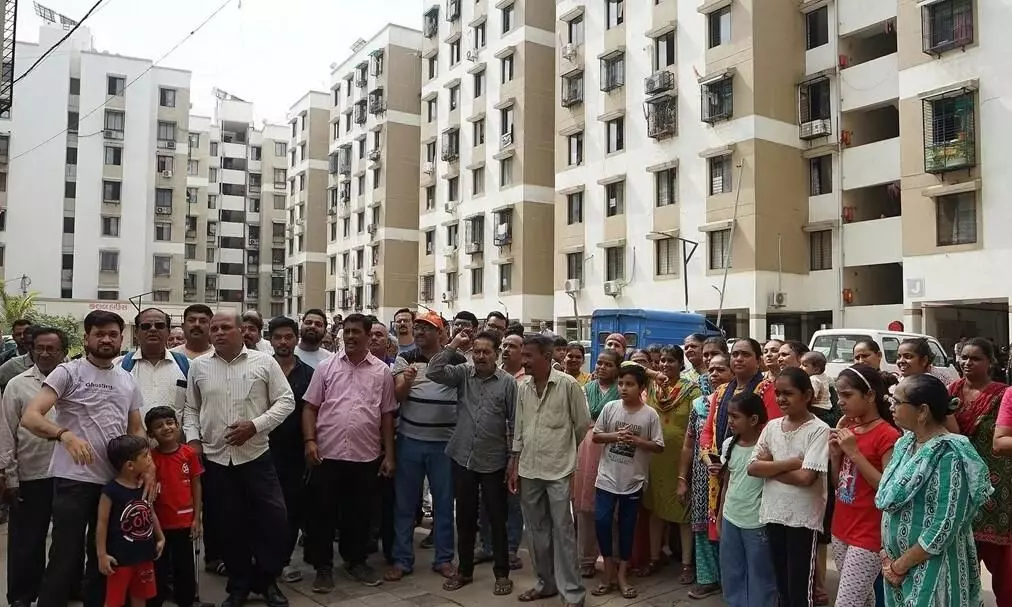
Residents don’t want Muslim woman in Govt-allotted flat in Vadodara
text_fieldsThe incident of the residents of a government-allotted flat complex in Vadodara persistently protesting and their reasoning for the protest against inducting a 44-year-old Muslim woman under a government scheme in the flat rightly exemplifies how divided the people in Gujarat are along religious lines.
The woman, who is employed by an arm of the Ministry of Entrepreneurship and Skill Development and has been allotted a dwelling unit under the Mukhyamantri Awas Yojana in Vadodara, has been facing protests from the residents, who have submitted several memorandums to the authorities, claiming that the presence of a Muslim is a "threat and nuisance" to the area, according to a report published in The Indian Express.
The Vadodara Municipal Corporation's (VMC) low-income group housing complex at Harni, which comprises 462 units, saw 33 of its residents petition the District Collector and other authorities, requesting the invalidation of the Muslim woman’s allotment.
This opposition first emerged in 2020 when residents wrote to the Chief Minister’s Office, seeking to overturn the allotment. Although the local police recorded statements from all involved parties and subsequently closed the complaint, the issue resurfaced recently with a renewed protest on June 10, 2023.
The woman expressed her disappointment, noting that she had hoped to raise her son in an inclusive neighbourhood, a value she cherished from her upbringing in Vadodara. Now, her son, who is in Class 12, is old enough to comprehend the discrimination they are facing, which she fears will have a detrimental impact on his mental well-being.
The memorandum submitted by the Motnath Residency Cooperative Housing Services Society Limited stressed that the Harni area is a Hindu-dominated neighbourhood with no Muslim settlements within a four-kilometre radius.
They argued that allowing a Muslim family to move in would disturb the peaceful life of the 461 other families residing there. The residents claim that their preference for a homogeneous religious community is based on a desire for comfort and avoiding potential law-and-order issues.
An immediate neighbour of the woman pointed out that the primary concern among residents stemmed from the woman’s religious identity, rather than differences in lifestyle, such as dietary habits. Despite several families in the colony being non-vegetarian, the idea of living next to someone of a different faith caused discomfort among the residents.
Currently, the woman lives with her parents and son in a different area of Vadodara. She has paid all necessary dues and remains firm in her decision not to sell her property despite the ongoing opposition. She has attempted multiple times to engage with the housing colony's managing committee, but her efforts have been met with silence.
One resident, however, has expressed support for the woman, emphasizing that she is a legitimate beneficiary of a government scheme and should be allowed to reside in her allotted home. The VMC officials reiterated that the housing draw was conducted without religious bias and followed all legal norms. They suggested that the matter could be resolved through mutual agreement or by seeking judicial intervention.























